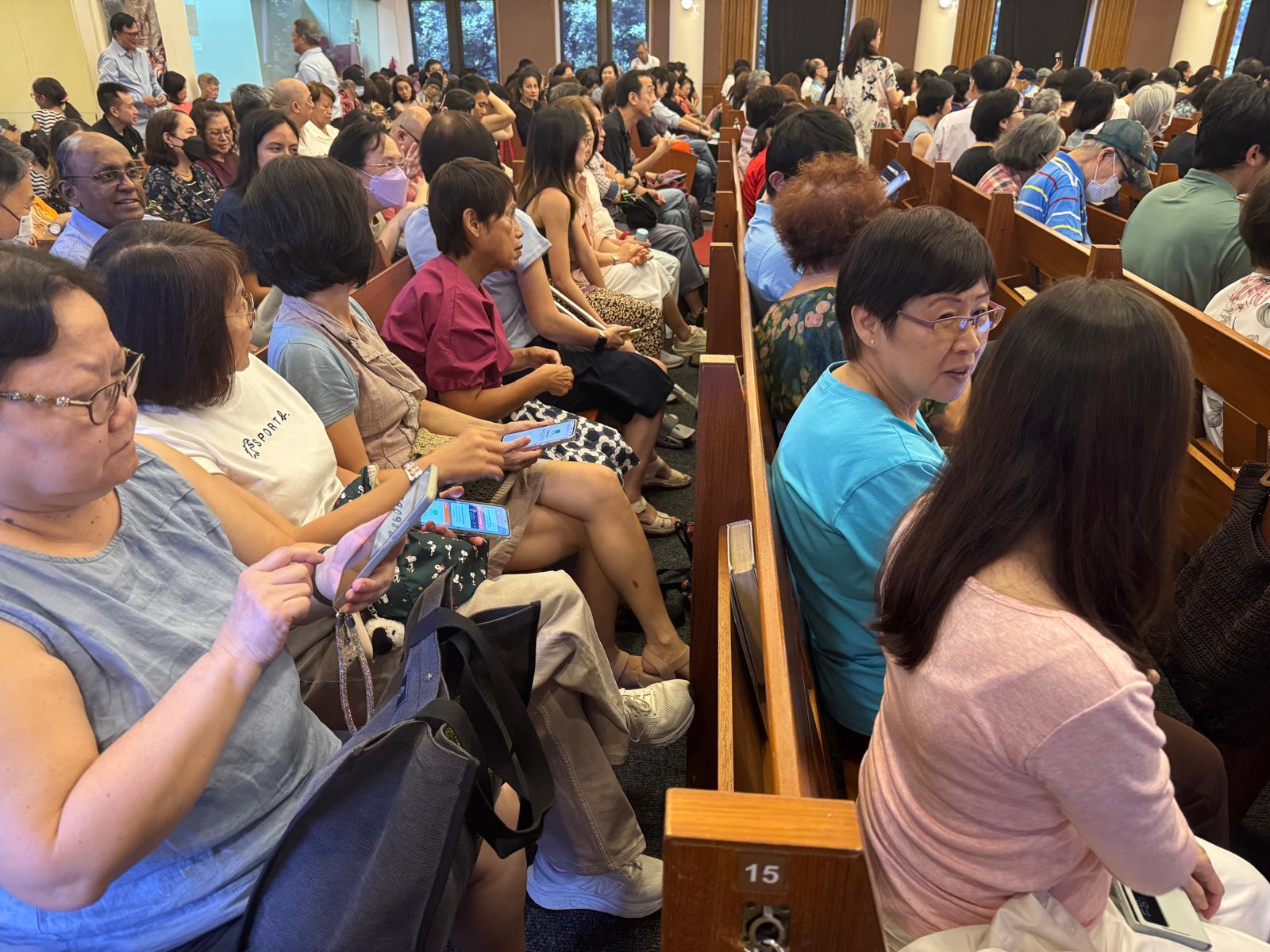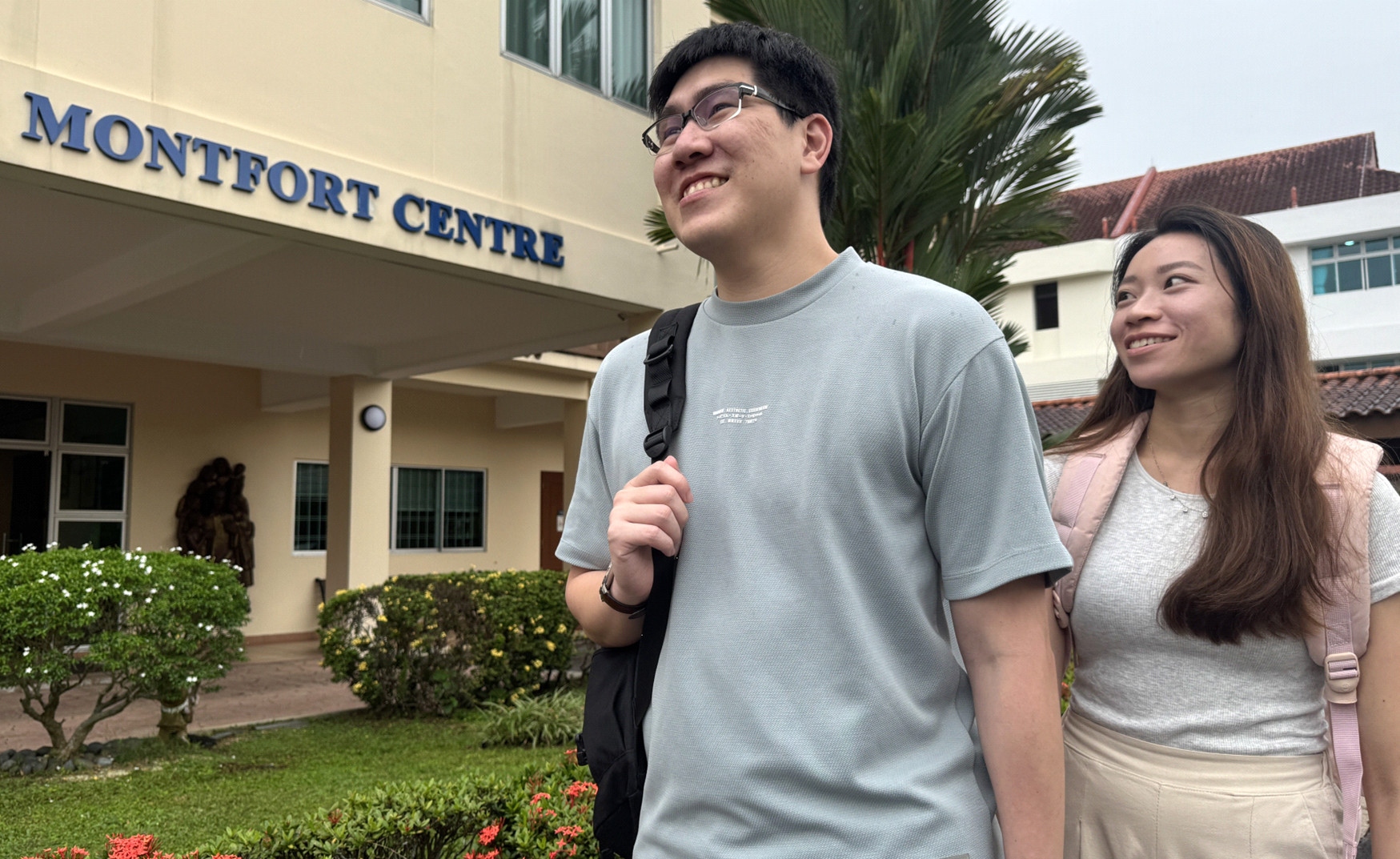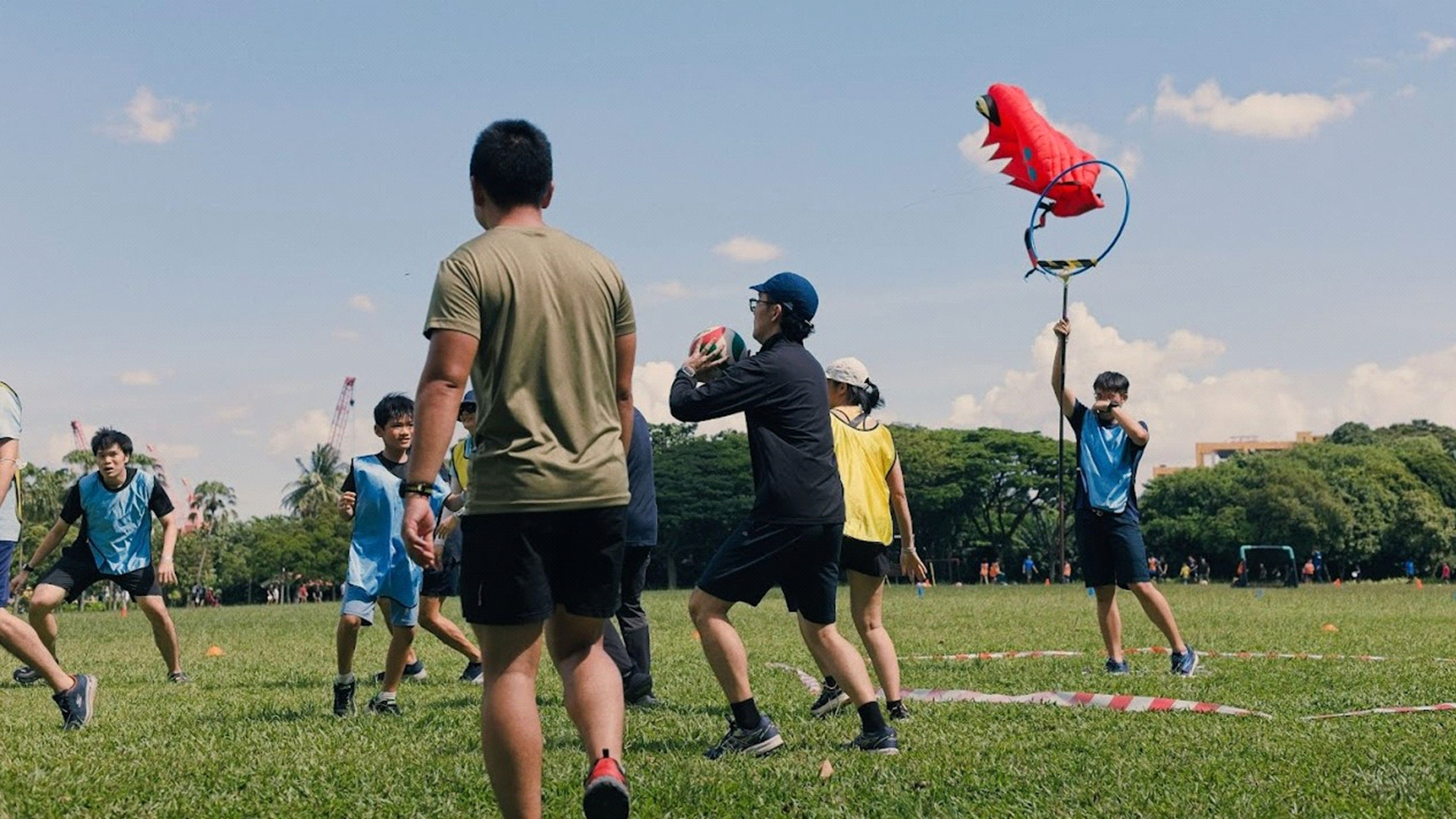
Elder Lek Siang Hwa and Rev Lee Kien Seng at this year’s annual congregational meeting on 4 May 2025.
At this year’s annual congregational meeting, one question in a basket of many important questions fired the imagination of church members.
It’s fair to say this: church members (and I’m a church member as much as I’m a church elder) are always interested to hear the questions fellow members ask, even if they don’t ask them, or think to ask them. It’s equally fair to say that because we’re members of one body, we feel these questions belong to all of us. We look forward to hearing the answers our church leaders give because there must be something important there and we want to learn stuff. At our annual church business meetings – there are two, the annual congregational meeting and the extraordinary congregational meeting - we gather to conduct the elections of pastors, elders and deacons; examine reports, accept financial statements; and, of course, to ask questions of each other. In truth, asking questions is a key way to build our church, as it is in many organisations and communities. To ask each other if we have run our race faithfully, to ask each other if we have accomplished what we wish to accomplish, to ask what we have lost, and if necessary, to come clean and make fresh starts. Well, the red-flag question on May 4 was submitted by a church member who, in essence, asked “I understand that we won’t be electing elders this year because the members approached declined nomination. But how many elders were we hoping to elect this year, anyway?” In several recent years, we have decided that the questions at ACM would be shared between session leaders. Hence when the time came for this question to be answered, it was session clerk Elder Lek Siang Hwa who took it. I think many members sat up and listened. Siang Hwa gave an illuminating response. He gave the facts. For example, he explained what the Session was, that it comprised ministers and elders. Not preachers, not deacons. He said it was our highest governing body. But more than that, he poignantly offered an account of his own election as elder in 2013, of how our elders serve the church, and why calling elders into service has become an increasingly urgent matter. I think many church members learned stuff. They learned that if our four church ministers were to be full, voting members of the Session the way it should be, we need a complement of eight elders. This is because being a charity we need to maintain a ratio of two-to-one for elders to ministers. This ratio is a governance guideline in the Presbyterian churches of Singapore. It says that it is important that there should be more unsalaried elders than salaried ministers inside the Session where matters of import may require a vote. Church sessions, it is believed, are most effective and unbiased if they comprise persons who are not just qualified, diverse and independent, but also unburdened by conflicts-of-interest. It is the elders in many Presbyterian congregations who handle governance, financial planning, strategic planning, fundraising, employment and remuneration. Of course, they are also shepherds and teachers who work on the ground, looking after congregants. But in structural matters, they work like board directors and take the lead. Hence the ratio handed down by the office of the Commissioner of Charities. Yes, churches and religious organisations in Singapore are charities. We comply with many guidelines. Elder Siang Hwa said because we would now have only four serving elders (one elder has just ended his term), with there being no elder candidate this year, we would have to restrict full, voting membership in our Session to only two ministers. What this means is while wisdom is diligently and generously shared at Session deliberations, we will keep two ministers out of voting. These two ministers will hold ‘observing’ roles. For better or for worse, a contracted Session affects plurality, representation and dynamics. “In our constitution, we’re allowed to have a total of three to 12 Session members,” said our session clerk. He didn’t say we should have eight elders and four ministers. But that would have satisfied the ratio of 2:1 very nicely. So, why are there no candidates for eldership this year? Because eldership is deemed a life-long vocation, our church elders, whom we ordain to three-year terms, are expected to return via elections to fresh terms again and again, until - what? The constitution doesn’t speak to this, but because it doesn’t mention retirement, the understanding is until death, disability or mental decline. “We have elected only one new, first-term elder in the last seven years,” said Elder Siang Hwa. “And it has not always been easy to call our ordained elders back because we’re all getting old. Thirteen out of our 17 elders are older than 65 years, and three are older than 70.”

Members serve their churches well if they keep abreast of developments and understand positions. Business meetings bring us into the pulsing life of the church.
Acknowledging unignorable realities, some of us (using the first-person, I’m speaking now as an elder) have shared that it would get harder and harder to come back to the Session. It is notable that our elders in this predicament share these thoughts with care. They don’t want to be misunderstood or criticised. They have wondered if they should keep serving till they drop dead at the plow. They have asked if any person is truly irreplaceable in the church. They ask if not returning could be construed as a lack of faith. Our leaders know that because elders serve long tenures, they often have a wisdom more burnished and hard-won than other categories of church servants. This is not puffery. Elders are often our best critics because they have been inside the machine from the time they started as deacons (perhaps as thirtysomethings) and have a strong sense of which potential changes are feasible, and which not. Said Elder Siang Hwa: “I heeded my call in 2013 because I believed in and voted for the constitution that God gave our church, that guides and shapes our church life. I remember being filled with fear and trembling because being an elder meant so many things.” But our stable of elders is truly getting on in years. And it’s not hard to realise that there are vulnerabilities when churches and organisations are led by people who are, well, too old. What about brand-new elders for the session? If we can’t tap on aging elders, how about finding new ones, perhaps men and women in their mid-40s to early 50s? Well, this has also been a bit of a cul-de-sac. If you keep your eyes open about church, you probably realise this. The qualifications for the job are high, the work has become more complex, the hours are often long. My count is: we might enter into unrushed, prayerful discussions with 7 to eight potential candidates, and find only one who’d accept a nomination.
God who stands above time gives wisdom to people and leaders, and more than wisdom, He gives mercy and a future.
At the ACM, we also saw the re-election of Pastor Kien Seng to his fourth term as senior minister of the church. While we have several associate ministers, the constitution allows only one senior minister at any one time. Ministers preach, teach, provide pastoral care, lead in the liturgy, visit members, conduct funerals and weddings and baptisms, and attend to other duties. The senior minister does all this and a whole lot more. Reverend Lee Kien Seng will continue in a joyful but tough vocation. We must pray for him. “In standing for re-election as your senior minister, I’m humbled and inspired when I see your faith at work. You show me what it means to be fervent in prayer, zealous in service, joyful in hope,” Pastor Kien Seng said. “You taught me how to struggle with God and yet have faith.” Elder Andrew Goh and Elder Jonas Lim, both members of the English Presbytery exco, were in attendance to supervise Rev Lee’s attendance. Elder Goh: “In the Presbyterian tradition, the calling of a minister is both a divine appointment and congregational responsibility. It’s a sacred act of discernment and not an administrative process.” Like Eld Siang Hwa who told us about elders, Rev Lee gave voice to leadership transition in the minister ranks. “I assure you that succession planning for the senior minister is on the minds of the elders.” Certainly, the question of “After me, who?” has many fine layers. All churches and denominations know that life does not hold still and that batons must be passed. Very certainty, churches will pray, hesitate, disagree, shrug, waver, and pray again. But God who stands above time gives wisdom to people and their leaders, and more than wisdom, He gives mercy and a future. Elder Siang Hwa offered soft words to future candidates. “If you have to feel very adequate or very confident before you stand for leadership, you may be standing on your own strength.” I have not forgotten our deacons. They are equally important. This year, seeing five deacon candidates on the ACM agenda fills my heart with joy. Many of us in the pews that morning felt the same joy as we cast our first-ever electronic votes. These young deacons will climb a learning curve, but they are our future. Not only will they renew our ranks, now that they have stepped across the threshold of election, they will see our nuts and bolts, learn our restrictions and reality, feel our anxieties, and understand our hope.
Lee Chung Horn is a church elder. He was elected in 2011, and has just completed his third elder term. He is a medical doctor and TOGETHER’s editor-in-chief.
TOGETHER is published online twice a year. Opinions expressed are those of the authors. All rights reserved. Current and previous issues of TOGETHER are available at trueway.org.sg/newsletters.
RELATED STORIES
 |
SILENT RETREAT |
 |
ONE BIG FAMILY |

